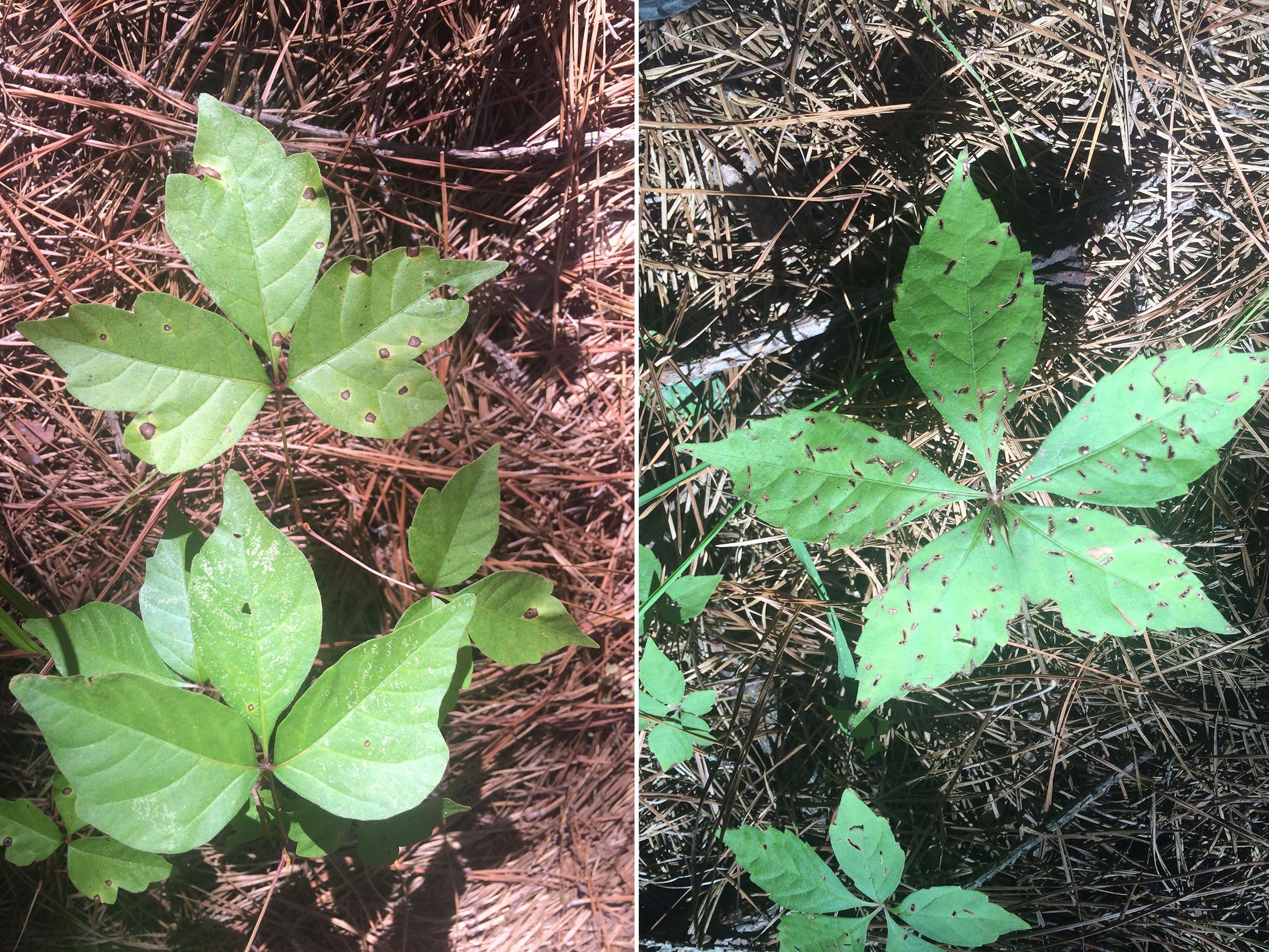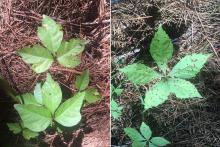Information Possibly Outdated
The information presented on this page was originally released on July 8, 2016. It may not be outdated, but please search our site for more current information. If you plan to quote or reference this information in a publication, please check with the Extension specialist or author before proceeding.
Avoid poison ivy contact during outdoor activities
RAYMOND, Miss. -- Outdoor activities in the spring and summer increase the risk of exposure to poison ivy, but the plants’ danger does not disappear when frost arrives.
Thriving on Mississippi’s hot, humid climate, poison ivy is very common across the state and causes discomfort for 80 to 85 percent of the population. The additional bad news is that allergic reactions from exposure to any part of the plants, including roots, also can occur during the winter from dormant plants.
Summertime is the best time to spot these itch-causing plants to either avoid them completely, remove them mechanically or carefully treat with an appropriate herbicide. To identify them, remember the rhyme, “Leaves of three, let them be.”
Poison ivy and poison oak have similar three-leaf patterns and should not be confused with the five-leaf Virginia creeper. Poison oak is the least common of the plants and is rarely found in the state. Poison ivy is spread mainly by birds that feed on its clusters of white berries, which are present in late summer and early fall. Poison ivy can be found as either a shrub or a vine.
In most cases, a person must come in contact with the plant to be affected. Occasionally, the oil from the plant may be transmitted from a pet that has been exposed to it or from clothing that has touched the leaves or vine. Reaction to the plants will occur 12 to 48 hours after contact.
If you believe you have come in contact with the oils, wash the affected areas with cool water and a good soap to remove the oils within four to six hours. This should help prevent or reduce any reactions. Hot water is definitely not recommended for cleaning up the area.
For those who are extremely sensitive, pollen under normal circumstances or oil in the air from burning plants may cause an adverse reaction. Therefore, burning is not recommended for eliminating the plants. Herbicides and mechanical removal are safer and more effective.
Make sure you are observant while outdoors to ensure your next outdoor activity remains itch-free.

Editor’s Note: Extension Outdoors is a column authored by several different experts in the Mississippi State University Extension Service.









